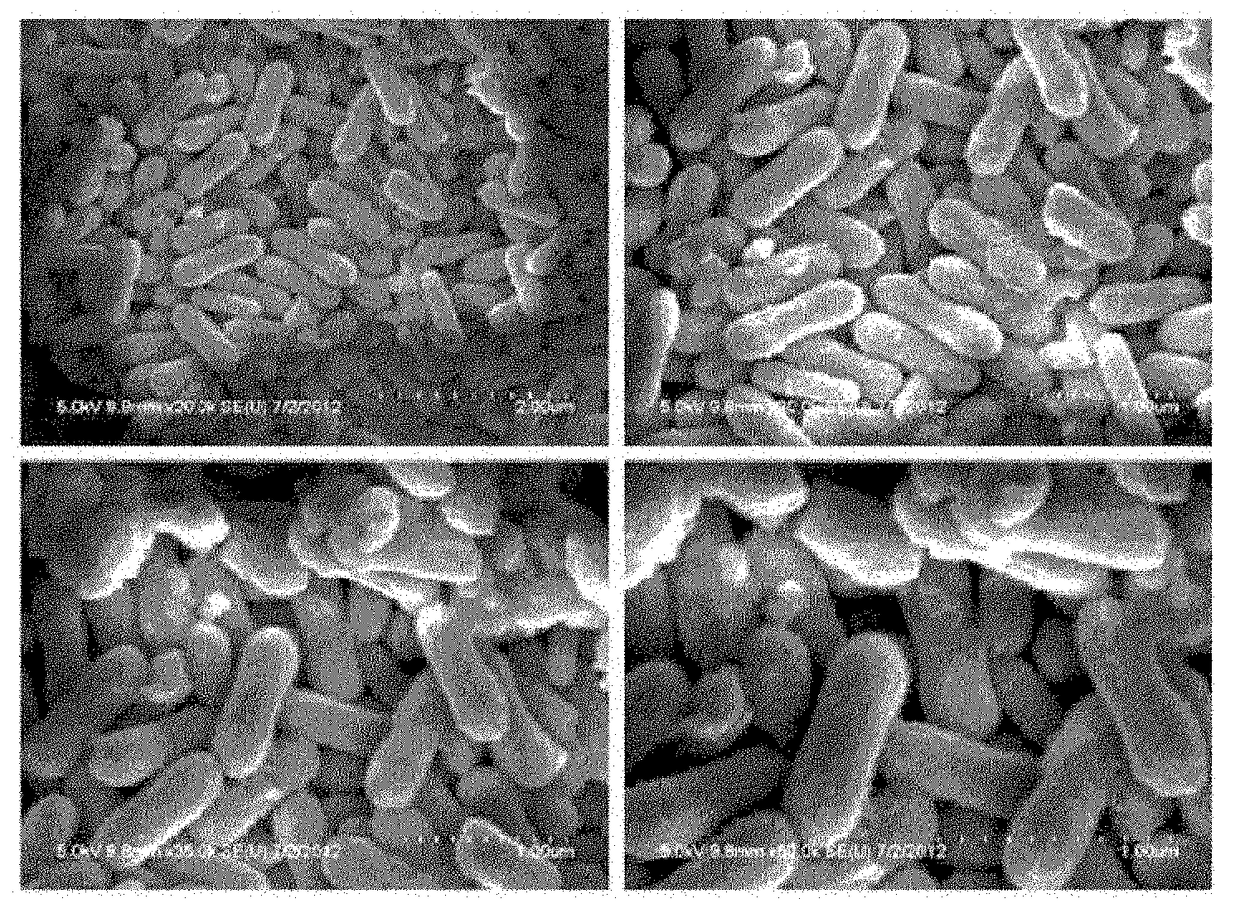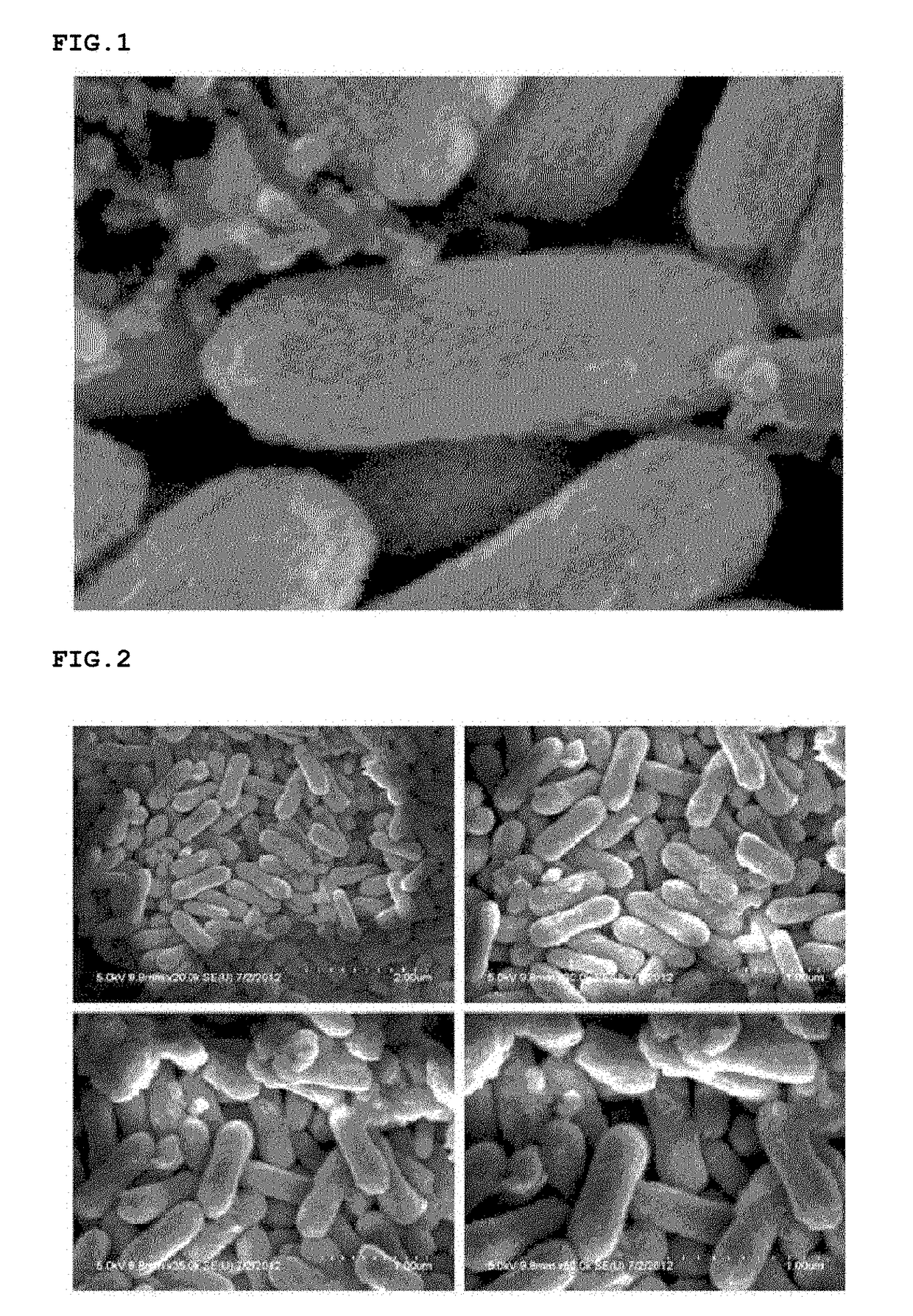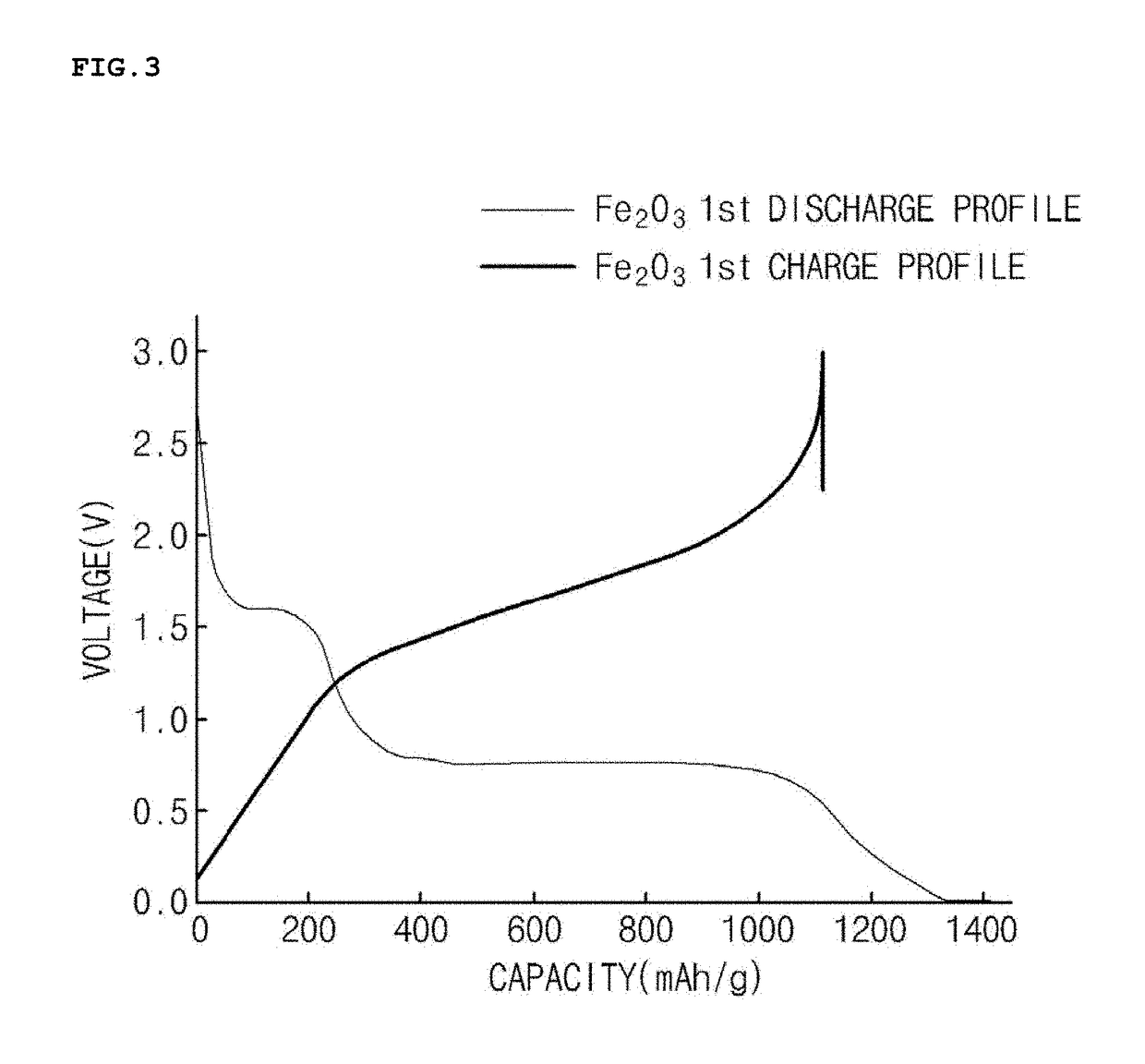Method of preparing iron oxide nanoparticles
a technology of iron oxide nanoparticles and nanoparticles, which is applied in the direction of cell components, electrochemical generators, transportation and packaging, etc., can solve the problems of difficult synthesis conditions (inert atmosphere) to be maintained, low capacity and cycle efficiency, and high cost of high-purity raw materials. , the effect of excellent capacity and stability
- Summary
- Abstract
- Description
- Claims
- Application Information
AI Technical Summary
Benefits of technology
Problems solved by technology
Method used
Image
Examples
example 1
1-1. Preparation of Iron Oxide Nanoparticles
[0048]A 2 M ferric chloride (FeCl3) aqueous solution, a 6 M sodium hydroxide (NaOH) aqueous solution, and a 0.6 M sodium sulfate (Na2SO4) aqueous solution were introduced into a reactor at a volume ratio of 10:9:1, and the aqueous solutions were then uniformly mixed using an impeller. The mixed solution was put in an electric convection oven at 102° C. and reacted for 96 hours to obtain a solid product.
[0049]The solid product was cooled, and then sequentially washed using water and ethanol. Thereafter, iron oxide nanoparticles (particle diameter: 500 nm) were obtained by drying the product in a vacuum drier (see FIG. 2).
1-2. Preparation of Battery
[0050]The iron oxide nanoparticles prepared above, a conductive agent (Super P), and a binder (KF 1100) were mixed at a weight ratio of 65:10:25 to prepare a slurry. A copper current collector was coated with the slurry and then dried in a vacuum oven at 120° C. for 12 hours or more.
[0051]A lithiu...
example 2
[0052]The iron oxide nanoparticles prepared in Example 1-1, a conductive agent (Super P), and a binder (KF 1100) were mixed at a weight ratio of 40:30:30 to prepare a slurry. A copper current collector was coated with the slurry and then dried in a vacuum oven at 120° C. for 12 hours or more.
[0053]A lithium metal was used as a counter electrode, and 1 M LiPF6 / ethylene carbonate (EC):ethyl methyl carbonate (EMC) (volume ratio 1:1) was used as an electrolyte to prepare a coin-type half cell.
PUM
| Property | Measurement | Unit |
|---|---|---|
| temperature | aaaaa | aaaaa |
| particle diameter | aaaaa | aaaaa |
| particle diameter | aaaaa | aaaaa |
Abstract
Description
Claims
Application Information
 Login to View More
Login to View More - R&D
- Intellectual Property
- Life Sciences
- Materials
- Tech Scout
- Unparalleled Data Quality
- Higher Quality Content
- 60% Fewer Hallucinations
Browse by: Latest US Patents, China's latest patents, Technical Efficacy Thesaurus, Application Domain, Technology Topic, Popular Technical Reports.
© 2025 PatSnap. All rights reserved.Legal|Privacy policy|Modern Slavery Act Transparency Statement|Sitemap|About US| Contact US: help@patsnap.com



